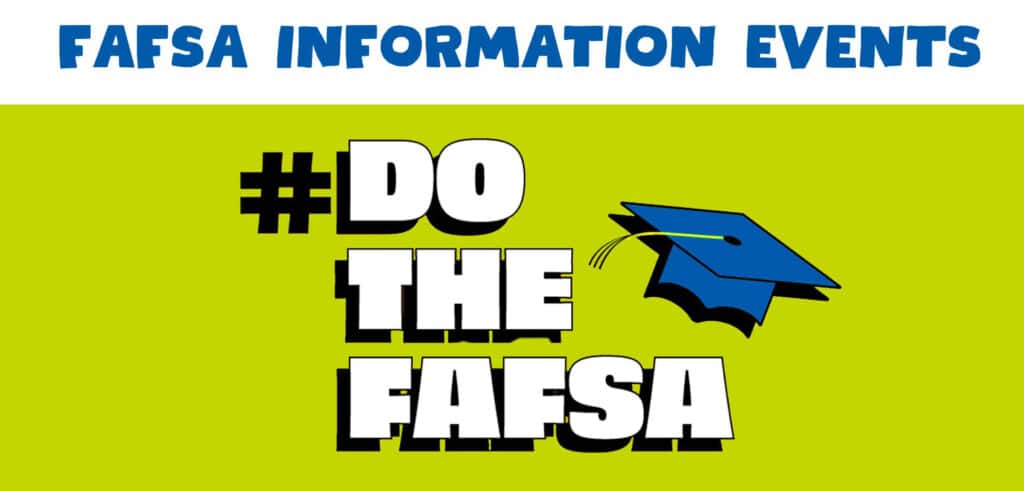The #DotheFAFSA campaign aims to reach Class of 2024 high school seniors

Florida’s community coalitions are rallying around the #DoTheFAFSA messaging campaign to encourage more seniors to complete the 2024-25 Free Application for Federal Student Financial Aid (FAFSA) form, which helps pay for postsecondary education.
The campaign is a rapid response initiative to remedy the problems caused by a recent overhaul of the FAFSA, outlined in the FAFSA Simplification Act and the FUTURE Act in 2019.
“Many students need a plan to pay for college and FAFSA is one of the most important steps students and families can take to start,” said Braulio Colón, executive director at the Florida College Access Network. “The urgency is to find the students who may have given up on the form and need help now.”
The U.S. Department of Education launched a $50 million award program, administered by ECMC, to support school districts, states, nonprofits, and community organizations in boosting FAFSA completion rates.
Statewide, community organizations that have received funding are designing and hosting a menu of opportunities in hopes of helping more students and families complete the form. For example, many are working with education institutions, banks, libraries, and summer programs. Many are training trainers, providing incentives such as gift cards, childcare, transportation, and offering virtual one-on-one consultations.
“We held a FSA ID day with follow-up with a FAFSA open house a week later just so we could make sure we crossed every T,” said Thomas Williams, director at PLANit Sarasota focused on Sarasota and Manatee County.
Yet reaching students during the summer months can be challenging. Many recent high school graduates take on summer jobs, which keeps them busy. Trends from previous years show that if seniors don’t enroll in college within 12 months after graduation, they are less likely to pursue education beyond high school altogether. With Florida’s growing workforce demand, this is contributing to a skills-gap in many sectors.
Leaders say this reality elevates the critical importance of completing the FAFSA and ensuring students understand the dollars available to pay for post-high school programs. Today, Florida remains behind on total FAFSA applications successfully completed.
“We’re about six and a half percent behind where we were a year ago, that’s almost 1500 students,” said Chuck Tiernan, director at LEAP Tampa Bay working in Hillsborough and Pinellas County.
| Seniors who complete the FAFSA are 84% more likely to immediately pursue an education beyond high school (National College Attainment Network). Currently, only 36% of Florida’s seniors have completed the FAFSA, ranking 48th in the country. |
“We’ve been doing some train the trainer workshops, essentially we’re training them to help other people complete the FAFSA,” said Tyler O’dneal, community impact director at United Way Miami in South Florida. “We wanted to fill in the gap and focus on just community partners that have a great relationship with the community.”
United Way Miami’s network of collaborators has grown to more than 15 agencies that are helping reach students in the most underrepresented communities, including farm workers. O’dneal found that while many students can complete the form in English, their families need translated help to understand the application.
Path to College, an organization in Palm Beach County, advertised extensively within the Latino and Haitian Creole-speaking communities. The Education Equalizer Foundation is also helping Spanish-speakers in Alachua and Lake County.
“This is a community initiative,” said Carjie Scott, Ph.D., at the Education Equalizer Foundation. “This is a crisis that we’re trying to overcome.”
Scott received a list of student names to contact and hopes students will begin to look at their e-messages.
“Part of our strategy has been to go after the technical colleges around Miami-Dade County,” said Eric Marroquín, program director at Educación for All serving students in Miami-Dade County. “Because part of it that we’re seeing is people just don’t know what it is or what it offers.
Since 2018, FCAN’s Florida FAFSA Challenge initiative engages with communities to increase completion rates through its dashboard, which shows how each county and individual schools are doing.
FCAN will continue hosting a series of virtual “learn and share” meetings open to all Florida entities undertaking summer FAFSA efforts. Events and resources are updated weekly.
“These next few months are critically important,” said Colón. “And we’re all in this together doing summer FAFSA work for the class of 2024.”


